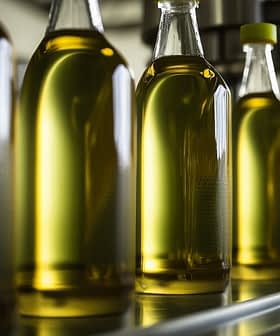Tunisia's Exports to EU Fall Despite Increased Duty-Free Quotas
Supplementary duty-free import quotas granted by the EU in 2016 have not resulted in an increase in Tunisian olive oil exports to the EU.
According to the Tunisian Economic Observatory (an independent organization of researchers, analysts, and activists), Tunisia has not been able to benefit from the increased duty-free import quotas granted by the EU in 2016.
On April 21, 2017, the Observatory published an article, Export of Tunisian Olive Oil: The Reality of EU Support, on its website highlighting the fact that the proposed EU support has not materialized in a concrete way.
It suggests that the proposal, adopted during the first round of the EU-Tunisia Deep and Comprehensive Free Trade Area (DCFTA) negotiations, was nothing more than a charm offensive rather than a real show of support for the Tunisian olive oil industry.
In April 2016, the European Parliament approved a temporary zero-duty tariff quota of 35,000 tons per year (a total of 70,000 tons for 2016 and 2017) for olive oil imports to the EU from Tunisia, in a bid to help strengthen the Tunisian economy following the 2015 terrorist attack. This was in addition to the 56,700 tons already allocated to Tunisia duty-free, for an annual total of 91,700 tons. The legislative proposal was adopted by the European Commission on September 17, 2016.
According to European Commission figures, in 2015 Tunisia used up the entirety of its maximum duty-free quota at the time — 56,700 tons, which represented 27 percent of its total exports to the EU that year. This was an exceptional crop year for Tunisia: it exported a total of 304,000 tons worldwide (according to figures released by the International Olive Council), and became the world’s largest exporter of olive oil that year.
In January 2016 Tunisia exported its maximum duty-free quota of 56,700 tons to the EU, after which exports were halted before resuming in May when the newly approved supplementary quota was applicable. Despite this top up, the EU imported only 10,351 extra tons from May to December 2016 – which represents only 30 percent of the extra quota. This means that Tunisia was not able to benefit from the extra boost of support the EU had promised.
Initial figures for 2017 indicate that so far only 37,154 tons of Tunisian olive oil have been exported to the EU up to the end of May. However, recent figures released by Tunisia’s National Office for Oil reveal a 28.5 percent drop in production and a subsequent 25 percent decrease in exports compared to last year.
The 2016 increase in tariff-free quotas for Tunisia had met with opposition in some European countries and particularly with farmers’ organizations in Italy who feared the consequences of cheap oil flooding their market.








